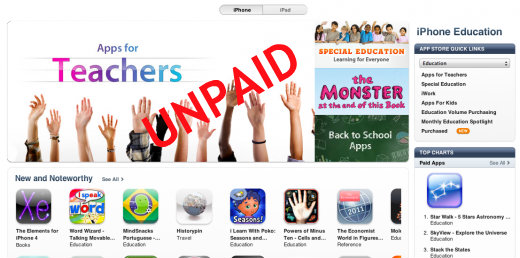We wanted to address a topic we re often asked about, but that is not very well understood in our industry.
App discovery is a jungle but it does not mean every single service that labels itself “app discovery” operates by the same rules.
You can find two categories of discovery services: paid discovery services and unpaid discovery services.

Paid discovery services require from the app developer some sorts of financial transaction to be exposed whether upfront, fee based or revenue share based. The most famous form of paid discovery are ad networks: admob, millennial, iAd, Facebook… They get paid by developers to expose apps through ad units and then users decide to interact with those ads. But paid discovery can have some other forms like the “Free to paid” services, some blogs who ask to be paid for a review, PR of course and SEM if used for that purpose.
The prime incentive for paid recommendation here is by far money. And the user being exposed to the recommendation comes second.
Unpaid discovery services will drive users to consider downloading an app without any sort of financial incentive from the developer and without a direct interest in the specific app they are recommending. The most famous form of unpaid discovery are the editorial lists that Apple and Google are putting together every day [if you still believed you had to pay for this, stop dreaming…]. Most review sites publish unpaid reviews (e.g. AppAdvice, 148apps, iPhon.fr,.. ), SEO is [normally] free, friends recommendations,..
The prime incentive for the unpaid recommendation here is quality, credibility and trust. The user here comes first.
Both paid discovery and unpaid discovery are necessary in that world and have benefits. But paid discovery has to be disclosed of course, because the user has to understand the agenda and the prime motivation of the recommender. How can you trust a recommendation service if the prime motivation is not perfectly aligned with yours: getting what is best for you?
Bottom line
App discovery as a service can work only if users trust you. Paid or unpaid, in the long run you can’t fool users. If you run ads, or if you are paid just say it - clearly. It will only reinforce the trust your users will have into your service. Imagine how bad it would look if Apple were taking money for apps being featured, but were not disclosing it in a clear and obvious way both to users and developers. If you do not get paid, users have to understand it too, although it is likely to be their default assumption (hence the importance of disclosure)
And when, as a user, you’re exposed to a recommendation, always ask yourself “why am i being recommended this? ” . Think of how many times you saw an “ad” which didn’t look like an ad..
As a developer try also to understand how users are usually exposed to an app with the service you’re going to use and understand the rules by which it operates.
——-
side note: Appsfire is all about unpaid app discovery. Our recommendations are made only based on the quality of the apps we believe are good [we call it "app score"]. We also leave some room so users can also become recommenders of apps they believe are good (We call it “spotted by users” ) even if we may not recommend those apps ourself. But we do also run an ad program which is for app promotion and we clearly disclose this is promotion. This is how we make a living.




